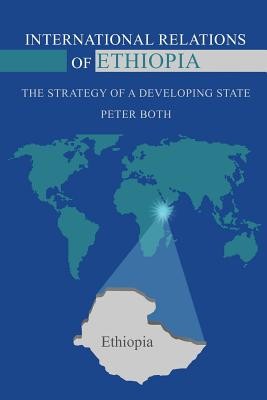
- We will send in 10–14 business days.
- Author: PETER BOTH
- Publisher: AuthorHouse
- ISBN-10: 141842563X
- ISBN-13: 9781418425630
- Format: 16 x 22.9 x 1.4 cm, softcover
- Language: English
- SAVE -10% with code: EXTRA
Reviews
Description
International relations of specific African countries have been grotesquely overlooked under the pretext of information insufficiency. But Africa is a visceral part of the international community and failure to efficiently represent it in the 21st century international relations is quite an annihilation scourge. This is so because Africa presents opportunities and challenges in this world of globalization. In the international relations of Ethiopia, Peter Both examines the ancient and contemporary international relations of Ethiopia from a unique perspective. A perspective that combines the cultural context, social work and international relations in order to effectively analyse the impact of interstate relations from macro to micro levels of the Ethiopian society. In so doing he proposes a foreign policy course which addresses various aspects of Ethiopian foreign relations. He proposes unilateral and multilateral courses of action to resolve the pressing issue of the Nile politics, increased involvement in the conflict resolution regime in the continent and the search for inter-African economic regime as opposed to reliance on Lome Conventions, GATT talks and WTO, which basically do nothing for African. If those institutions did provide any thing for Africa, the west would prefer hibernation to engagement. It is a transparent poppycock, which requires no rocket science. Peter also proposes that colonial boundaries in African need to be revised in order to avoid civil conflicts. Colonial boundaries top the list of major causes of death and civil wars in Africa. If the boundaries are left as they are due to African leadership paranoia, peace in Africa would remain a machiavellian hallucination.
EXTRA 10 % discount with code: EXTRA
The promotion ends in 16d.01:06:46
The discount code is valid when purchasing from 10 €. Discounts do not stack.
- Author: PETER BOTH
- Publisher: AuthorHouse
- ISBN-10: 141842563X
- ISBN-13: 9781418425630
- Format: 16 x 22.9 x 1.4 cm, softcover
- Language: English English
International relations of specific African countries have been grotesquely overlooked under the pretext of information insufficiency. But Africa is a visceral part of the international community and failure to efficiently represent it in the 21st century international relations is quite an annihilation scourge. This is so because Africa presents opportunities and challenges in this world of globalization. In the international relations of Ethiopia, Peter Both examines the ancient and contemporary international relations of Ethiopia from a unique perspective. A perspective that combines the cultural context, social work and international relations in order to effectively analyse the impact of interstate relations from macro to micro levels of the Ethiopian society. In so doing he proposes a foreign policy course which addresses various aspects of Ethiopian foreign relations. He proposes unilateral and multilateral courses of action to resolve the pressing issue of the Nile politics, increased involvement in the conflict resolution regime in the continent and the search for inter-African economic regime as opposed to reliance on Lome Conventions, GATT talks and WTO, which basically do nothing for African. If those institutions did provide any thing for Africa, the west would prefer hibernation to engagement. It is a transparent poppycock, which requires no rocket science. Peter also proposes that colonial boundaries in African need to be revised in order to avoid civil conflicts. Colonial boundaries top the list of major causes of death and civil wars in Africa. If the boundaries are left as they are due to African leadership paranoia, peace in Africa would remain a machiavellian hallucination.


Reviews